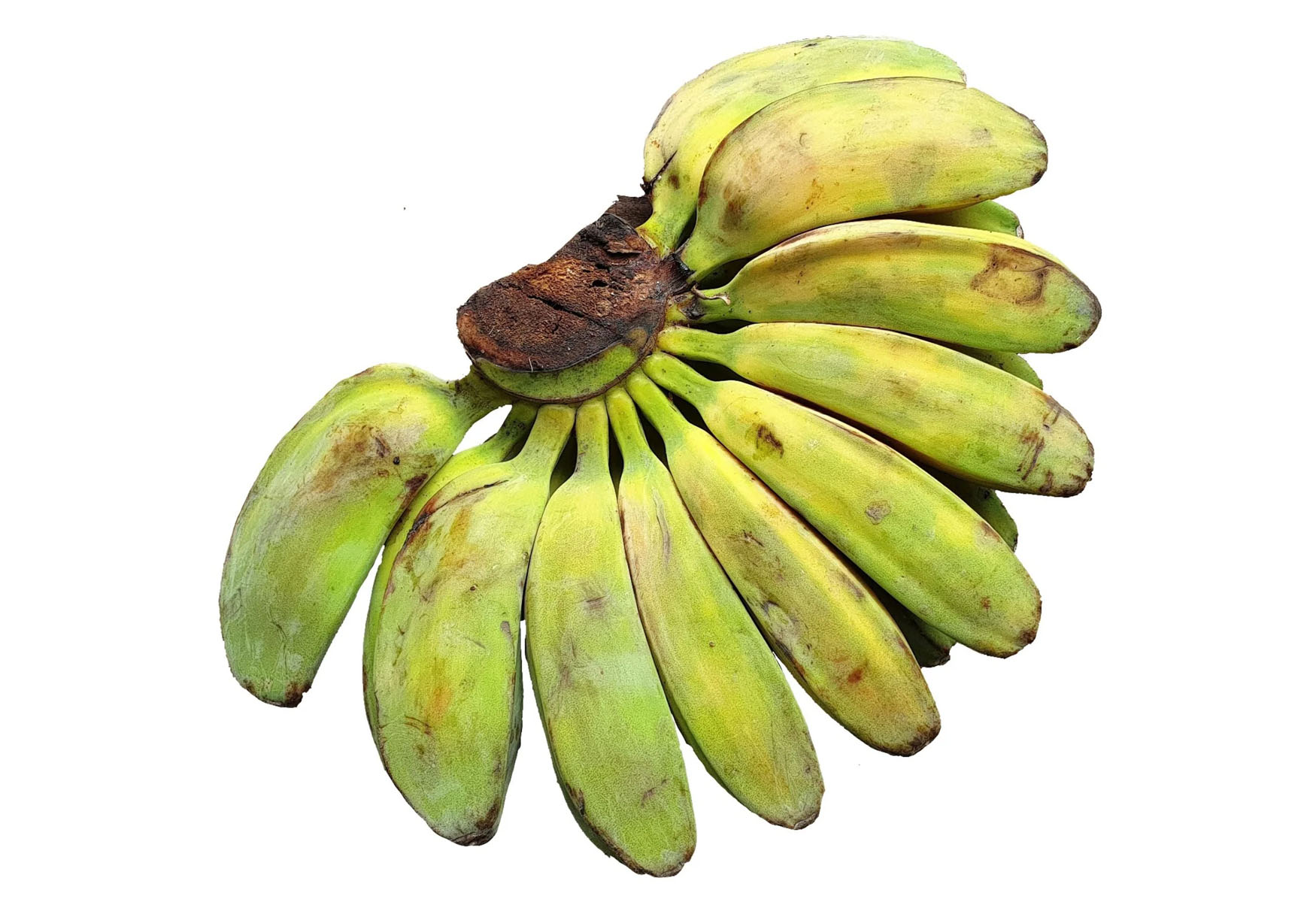
The Saba banana, also known as the Cardaba banana, is a variety of banana that is widely consumed in many parts of the world. While most people are familiar with the common Cavendish banana, the Saba banana offers a unique flavor and texture that sets it apart. Not only is the Saba banana delicious, but it also boasts an impressive array of nutritional benefits.
In this article, we will explore 20 fascinating Saba banana nutrition facts that highlight the various health benefits associated with this delectable fruit. From its high fiber content to its abundance of essential vitamins and minerals, the Saba banana is a nutritional powerhouse that can be a valuable addition to any diet.
So, if you’re curious about the specific nutritional benefits of the Saba banana, read on to discover why this humble fruit deserves a place on your plate.
Key Takeaways:
- Saba bananas are a powerhouse of nutrients, providing essential vitamins, minerals, and fiber for a healthy digestive system and overall well-being. They are a delicious and versatile fruit that can be enjoyed in various ways.
- With their low calorie count and high fiber content, Saba bananas make a satisfying and nutritious snack for anyone looking to manage their weight and promote digestive health. Plus, they are a natural mood booster and can help regulate blood sugar levels.
Saba banana is rich in potassium.
Saba bananas are an excellent source of potassium, with one medium-sized banana containing approximately 400-450 milligrams of this essential mineral. Potassium is vital for maintaining proper heart function, regulating blood pressure, and supporting healthy muscle contractions.
Saba bananas are a great source of dietary fiber.
With about 3 grams of fiber per medium-sized banana, Saba bananas can help promote healthy digestion and regular bowel movements. Fiber also helps control blood sugar levels and contributes to a feeling of fullness, making it a beneficial addition to a balanced diet.
They are low in calories.
For those watching their calorie intake, Saba bananas are a great choice. With an average of 120-150 calories per banana, they can be enjoyed as a satisfying snack without compromising your dietary goals.
They contain essential vitamins.
Saba bananas are a good source of vitamins C and BVitamin C is known for its immune-boosting properties and its role in collagen production, while vitamin B6 supports brain health and helps the body produce the hormones serotonin and norepinephrine.
Saba bananas are gluten-free.
Individuals with gluten sensitivities or celiac disease can safely enjoy Saba bananas, as they are naturally free of gluten. They can be a nutritious alternative to wheat-based snacks and desserts.
They are a good source of energy.
Saba bananas are a rich source of carbohydrates, providing a quick and sustainable energy boost. They are a favorite among athletes and those looking for a natural pick-me-up.
Saba bananas contain essential minerals.
In addition to potassium, Saba bananas contain other important minerals such as magnesium, manganese, and copper. These minerals play key roles in maintaining overall health and wellbeing.
They contain antioxidants.
Antioxidants help protect the body from harmful free radicals, which can contribute to chronic diseases. Saba bananas contain various antioxidants, including dopamine and vitamin C, that can help reduce oxidative stress.
Saba bananas are cholesterol-free.
For individuals concerned about their cholesterol levels, Saba bananas are a cholesterol-free food option. They are a heart-healthy choice that can be enjoyed without worrying about negatively impacting your cardiovascular health.
They are a good source of resistant starch.
Saba bananas are unique as they contain resistant starch, which is a type of fiber that resists digestion in the small intestine. This type of fiber helps keep you feeling fuller for longer and can support healthy weight management.
Saba bananas promote digestive health.
Thanks to their high fiber content, Saba bananas contribute to a healthy digestive system. They can help prevent constipation, promote regular bowel movements, and support the growth of beneficial gut bacteria.
They can help regulate blood sugar levels.
Saba bananas have a low glycemic index, meaning they have a minimal impact on blood sugar levels. This makes them a suitable fruit choice for individuals with diabetes or those looking to manage their blood sugar levels.
Saba bananas are a natural mood booster.
Rich in vitamin B6, Saba bananas can help boost serotonin and norepinephrine production in the brain, which are neurotransmitters associated with mood regulation and feelings of happiness and well-being.
They are a good source of essential amino acids.
Amino acids are the building blocks of proteins, and Saba bananas contain various essential amino acids that the body needs for proper functioning. Incorporating Saba bananas into your diet can help ensure you get an adequate amount of these vital nutrients.
Saba bananas are a versatile ingredient.
Whether you enjoy them raw, baked, or blended into smoothies, Saba bananas can be used in a variety of recipes. They can add natural sweetness, moisture, and flavor to dishes, making them a versatile ingredient in both sweet and savory dishes.
They can aid in managing blood pressure.
The potassium content in Saba bananas plays a crucial role in regulating blood pressure by counteracting the effects of sodium. Including Saba bananas in a well-balanced diet may help maintain healthy blood pressure levels.
Saba bananas are a natural source of fructooligosaccharides (FOS).
FOS is a type of prebiotic fiber that helps stimulate the growth of beneficial bacteria in the gut. Consuming Saba bananas can contribute to a healthy gut microbiome and support overall gut health.
They are a great natural remedy for heartburn.
For individuals suffering from heartburn, Saba bananas can provide relief. Their low acid content helps neutralize stomach acid, soothing the discomfort associated with heartburn.
Saba bananas can aid in weight management.
Due to their high fiber content and low calorie count, Saba bananas can be a valuable component of a weight management plan. The fiber helps promote feelings of fullness and can reduce overeating.
They are a natural source of vitamins and minerals.
Beyond potassium, vitamin C, and vitamin B6, Saba bananas also contain trace amounts of other vitamins and minerals, including vitamin A, vitamin E, iron, and zinc. Incorporating them into your diet can help provide a wide range of essential nutrients.
Conclusion
Saba bananas, also known as cooking bananas, are a nutrient-rich fruit that offers many health benefits. With their high fiber content, they support digestion and promote a healthy gut. They are also a good source of vitamins C and B6, which boost the immune system and help maintain brain health. Additionally, Saba bananas are rich in minerals such as potassium and magnesium, which are essential for maintaining heart health and regulating blood pressure.
Not only are Saba bananas nutritious, but they are also versatile in the kitchen. They can be used in a variety of dishes, from desserts like banana bread and fritters to savory recipes like stews and curries.
Incorporating Saba bananas into your diet can be a delicious way to enjoy their numerous health benefits. So, why not grab a bunch of Saba bananas during your next trip to the grocery store and start reaping the nutritional rewards?
FAQs
1. What makes Saba bananas different from regular bananas?
Unlike regular bananas, Saba bananas are larger in size and have thicker skins. They are primarily considered a cooking banana and are often used in various dishes across different cuisines.
2. How do I incorporate Saba bananas into my diet?
There are plenty of delicious ways to include Saba bananas in your meals. You can slice and sauté them as a side dish, use them as a topping for pancakes and waffles, or even bake them into muffins and cakes.
3. Are Saba bananas high in sugar?
Compared to regular bananas, Saba bananas have a slightly higher sugar content. However, they also contain a good amount of fiber, which helps regulate blood sugar levels and prevents spikes.
4. Can Saba bananas help with digestion?
Yes, Saba bananas are rich in dietary fiber, which aids in digestion and promotes a healthy digestive system. Including them in your diet can help alleviate constipation and promote regular bowel movements.
5. Are Saba bananas suitable for people with high blood pressure?
Yes, Saba bananas are a good source of potassium, which helps regulate blood pressure levels. Including them in a well-balanced diet, along with other healthy lifestyle choices, can contribute to maintaining healthy blood pressure.
Was this page helpful?
Our commitment to delivering trustworthy and engaging content is at the heart of what we do. Each fact on our site is contributed by real users like you, bringing a wealth of diverse insights and information. To ensure the highest standards of accuracy and reliability, our dedicated editors meticulously review each submission. This process guarantees that the facts we share are not only fascinating but also credible. Trust in our commitment to quality and authenticity as you explore and learn with us.


